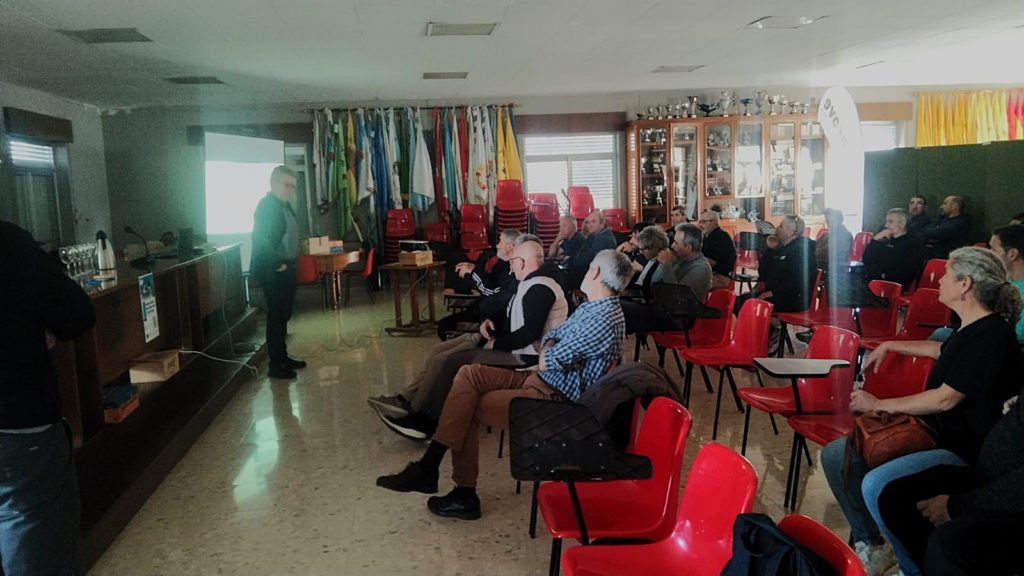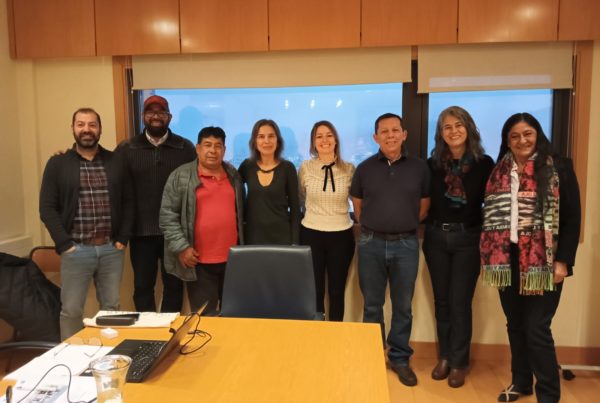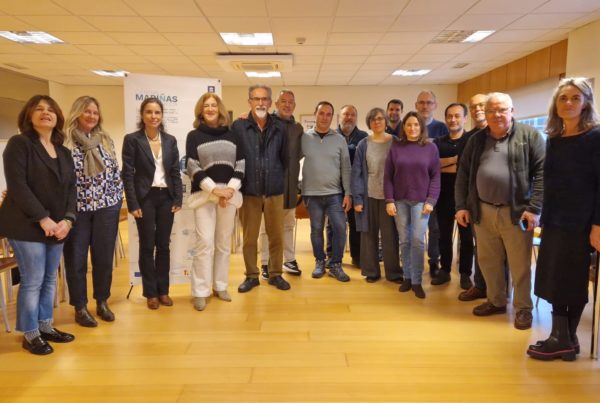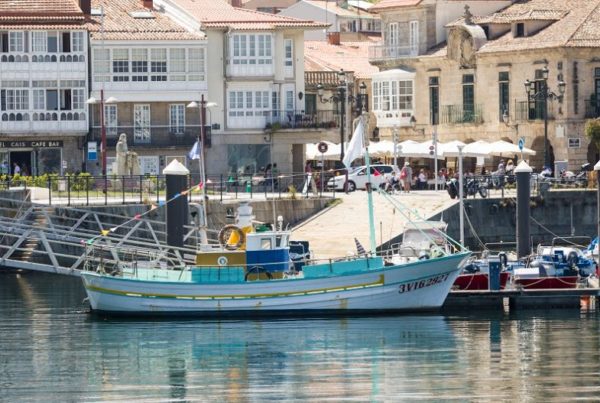CETMAR presents to mussel producers the research results and the new tools to support the planning of campaigns for the collection of mussel seed
- CETMAR organized in O Grove the first transfer workshop planned in the Capacitamex project and which targeted the members of the association Amegrove
- This is the first workshop planned to bring science closer to producers where experts from CIMA, the University of Vigo and IIM-CSIC participated
The headquarters of Amegrove, the cooperative of mussel producers, was yesterday the location of the first workshop scheduled by CETMAR in Capacitamex. This project aims to transfer to the productive sector the research results and tools developed to support mussel harvesting campaigns.
Funded by the European Maritime, Fisheries and Aquaculture Fund (EMFAF)) and the Regional Department for the Sea, Capacitamex is building bridges between science and the productive sector and generating dialogue between researchers and producers, while making accessible the advances to know the state of the marine environment and predict its behaviour and effect on mussel farming.
During this first day, attendees learnt the results of Apromex, a project also funded by EMFAF and developed by the Centre for Marine Research (CIMA) with technical support from CETMAR. It addressed the analysis of juvenile mussel populations in the rocky intertidal, the evaluation of new systems for mussel seed uptake and the development of seed production systems in hatcheries.
Experts from CIMA, the Centre for Research in Nanomaterials and Biomedicine of the University of Vigo (CINBIO), the Institute of Marine Research (IIM-CSIC) and the Marine Technologies Unit of CETMAR were in charge to transfer to the producers the research results and the tools generated as a result of these studies.
For instance, the web viewers allowing access to data collected in the pre-campaign sampling on the state of the mussel seed population in the Galician coast, and the quantification of mussel larvae in the estuaries performed weekly. They are now available to the sector thanks to the new tools. In addition, the researchers reported the results of the latest scientific studies that connect upwelling and prevailing winds in the estuaries with the availability of mussel seed.
.
The session concluded with a presentation by CETMAR on the application to declare mussel harvesting, both in natural banks and in collecting ropes, and that makes it possible through a mobile terminal.
This was the first of a series of workshops designed to provide a common vision of researchers, managers, and producers regarding the importance of knowledge about the mussel cycle and the analysis of the environmental factors that influence. It facilitates the adaptation to changes in the environment and supports the environmental, economic, and social sustainability of the mussel sector.







